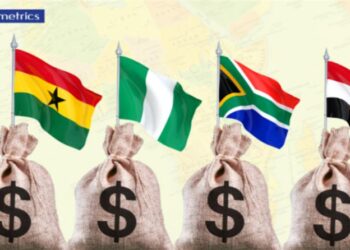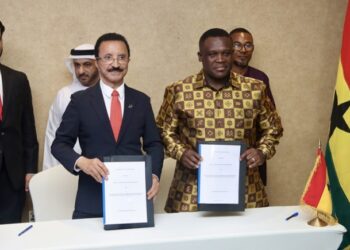The head of the International Monetary Fund (IMF), Kristalina Georgieva, paid a visit to Ghana where she stated that the West African country should make sure that debt relief deals it negotiates with its Eurobond creditors do not undermine the country’s effort to recover from its economic crisis.
According to Reuters, the IMF boss met with the Ghanaian president, Nana Akufo-Addo, in a private meeting earlier in the week as Ghana battles to recover from its worst economic crisis in a generation.
Ghana defaulted on most of its external debt in December 2022 and in January 2024 it reached a deal in principle to restructure $5.4 billion of loans with official creditors, including China and France.
Ghana’s effort to overhaul $13 billion in international bonds is reaching its conclusive stage. According to Reuters, International bondholders entered into non-disclosure agreements with the Ghanaian government last week. This marks the beginning of formal talks to restructure debts.
- “You cannot allow the Eurobond creditors to twist your arm,” Georgieva told Akufo-Addo in the private meeting.
- “Why? Because you have done a very painful domestic debt restructuring that hurt people here [and] you have agreed, in principle, [a] debt restructuring with the official creditors of Ghana under certain conditions,” she added.
Georgieva said Ghana has to strike a fair deal unless risks facing a scenario akin to Zambia.
Zambia is the first country to default on its external debt. It defaulted during the COVID-19 era and is currently seeing its debt restructuring process beset by setbacks.
An IMF spokesperson shared his thoughts on the role of the IMF in mediating debt restructuring between countries and commercial creditors.
The Spokesperson relayed that in the context of a debt restructuring, the IMF helped define broad parameters that underpin restoring debt sustainability but does not take sides.
- “The specifics of how to achieve this is left to sovereign governments and their creditors. In this case, the managing director was referring to the need to ensure the program parameters are met,” the spokesperson added.
What to Know
- While the IMF plays a key role in advising countries on how to get their debt back onto a sustainable footing, it usually does not comment publicly on the debt restructuring process.
- Based on the World Bank’s International Debt Statistics, 64% of Ghana’s external debt is to private lenders. 20% of the debt is to multilateral institutions and 6% to other governments.
- Approximately $13 billion of Ghana’s external debt is held in the form of Eurobonds by major asset management corporations including BlackRock, Abrdn, and Amundi (UK) Limited.























